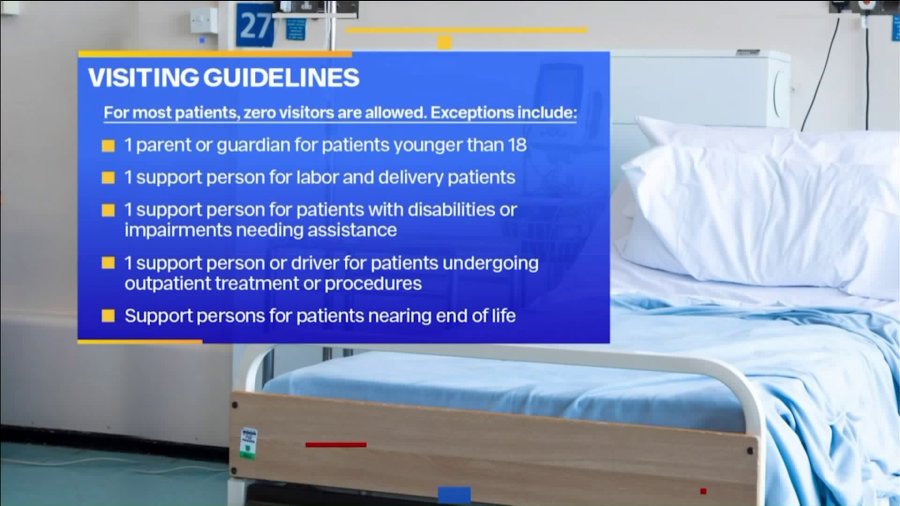KANSAS CITY, Kan. — Many hospitals in the area are now limiting the number of people that come in and out to prevent the spread of COVID-19.
In some cases, visitors aren’t allowed at all.
That can be hard for families wanting to be close to their loved ones, like Barbara Brendle, whose husband, Jeff, continues to recover at the University of Kansas Hospital.
“He’s not in the state of mind to make a lot of his medical decisions,” she said.
On Saturday, Jeff was transported from a hospital in St. Joseph to KU Hospital. The 54-year-old needed surgery after breaking his femur at work. Tests also revealed that the father of five has Stage 4 kidney cancer.
“It’s rough because I can only imagine what he’s going through,” his wife said.
On Wednesday, the day of Jeff’s surgery, the hospital announced patients would no longer be allowed visitors starting Thursday. There are some exceptions, including patients younger than 18, expectant moms and those nearing the end of life, among other things.

Barbara said she was devastated because she had been her husband’s side since he arrived. She didn’t want to leave him at the hospital alone with their home nearly an hour away in St. Joseph.
“It’s scary. We’ve been together for 34 years, married 34 years, so you can just about imagine what I felt like because anything can happen,” Barbara said.
“There are no situations that are easy,” said Chris Ruder, COO of KU Hospital.
Ruder said restricting visitors was one of the toughest things they had to do all week.
“We know that families and friends are so important in the care that we provide but also clearly in the support of our patients,” he said.
Ruder said it’s not easy telling patients their respective support systems aren’t allowed in the hospital.
“There are no situations that someone has a story that isn’t right. Say I really do need to visit, and they are right,” he said.
“So we are taking every one of those, having conversations individually to best understand and make sure we can tell the visitor how we are trying to keep everyone safe.”
He couldn’t speak specifically to the Brendles situation but said he’s thankful patients have access to technology so they can stay in contact with their loved ones.
“To be able to do things like Skype, Facetime, some of those technological ways to connect people are really important,” Ruder said.
Barbara misses being with her husband, but the 52-year-old said she understands what’s happening in the world right now is unique.
“With this virus going around, I know it’s bad and it’s serious,” she said. “I know it’s not the hospital’s fault or employees. They’ve all been great to us.”
Jeff is expected to be released on Monday. He’ll have to check into a rehabilitation center to nurse his leg back to good health.
For a detailed look at the University of Kansas Health System’s visitor guidelines, click here.
